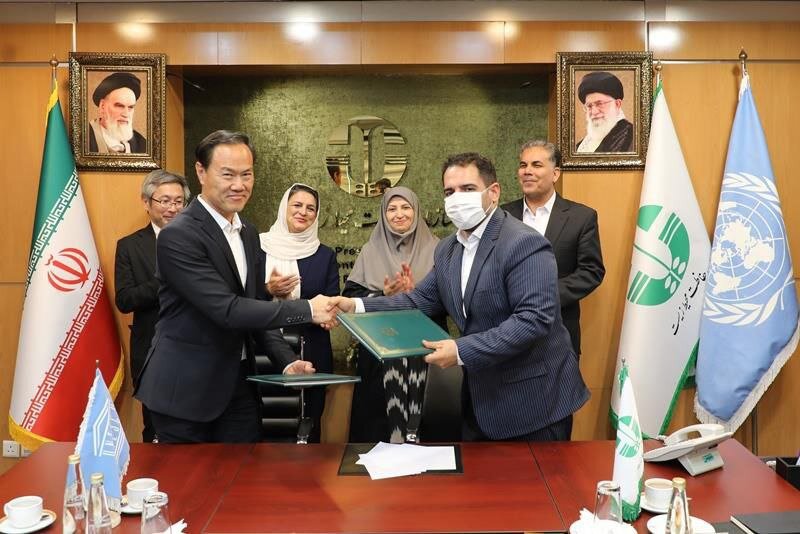Tehran – The international project to manage natural disasters and increase resilience to the impacts of climate change has been officially launched by representatives of the Ministry of the Environment (DOE), the Japanese Embassy, and the United Nations Education, Science and Cultural Organizations (UNESCO).
The project’s documents, funded by Japan, were signed on Monday by Ayen Slong, head of the UNESCO Tehran office, and Ahman Korusand, DOE’s Directorate of International Affairs.
The main objectives of the project include developing flood hazard maps, establishing early warning systems, assessing and managing agricultural drought risks, and strengthening the power of communities, particularly women and young people, to prepare for disasters and crises.
The project also aims to develop scientific and technical infrastructure in crisis management with the potential to become a regional model for combating the impacts of climate change.
Referring to the challenges of climate change, DOE director Shina Ansari highlighted the importance of public participation, Indigenous knowledge and modern technology in disaster risk reduction.
Aien Slong, head of the UNESCO Tehran office, praised the environmental cooperation between the two organizations, highlighting the importance of prioritizing science and raising awareness in the fight against climate change.
The impact of climate change
According to the country’s former permanent representative and ambassador for Food and Agriculture Organization (FAO), climate change has had a major impact on the agricultural sector and food security in many countries by affecting rainfall patterns, pollination, flowering, and even harvest times.
In some parts of the country, temperatures have risen 2 degrees, but the highest temperature in the world is 1.5 degrees.
Research shows that evaporation increases by 23% when the temperature of the planet is increased in degree, resulting in a negative impact on the agriculture and animal care sectors.
Climate change also changes plant growth patterns and disrupts the nutritional value of crops, he emphasized.
Furthermore, the unexpected effects of climate change, such as drought, floods and landslides, all have impacted food security.
Strengthening cooperatives could improve crisis management
In September 2024, a former head of crisis management agencies said strengthening cooperation between ECO members in the areas of forecasting, prevention, preparation, response, reconstruction and rehabilitation can significantly increase the efficiency of crisis management.
“The world is currently facing harsh challenges, and the most important of them are climate change, water shortages (especially fresh and safe water), lack of green spaces, desertification, and more, and Mohammad Hassan Nami says.
Regarding the availability of valuable technologies in crisis management, Nami proposed the proper use of intelligent systems to carry out correct data analysis to further advance the national goals.
Officials noted that access to genuine, reliable information related to risk is the basis for making prompt, accurate, effective and timely decisions in handling emergencies and reducing financial and life losses. However, a significant portion of the risk is not limited to geographical boundaries.
It is essential that ministries and emergency organizations from ECO members act in the form of consistent information and intelligent systems to analyze and evaluate data in a timely manner and issue warnings to responsible organizations.
mt/mg

